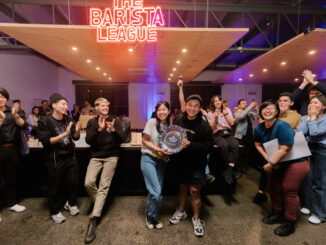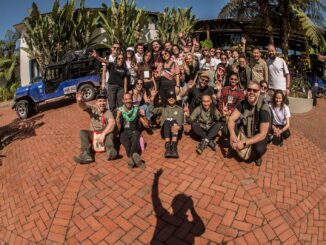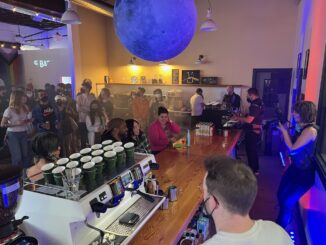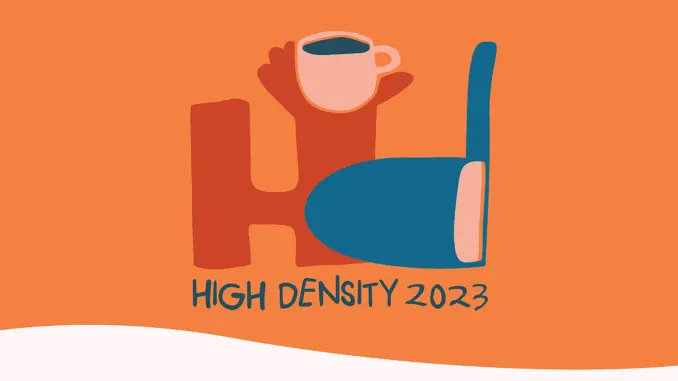
At the Ordna Event Agency’s recent High Density 2023 event, the concept of ’origin’ extended beyond borders through impactful discussions, celebration of diversity, and a commitment to positive change in the coffee community.
BY VASILEIA FANARIOTI
SENIOR ONLINE CORRESPONDENT
Featured photo courtesy of Ordna Event Agency
Recently I immersed myself in insightful discussions at the much anticipated High Density 2023 conference. Held November 16 and streamed live on YouTube, this year’s conference was a celebration of the complexities that often go unnoticed in the global coffee industry.
Themed “Not Just Origin“ and organized by the innovative Ordna Event Agency—the people behind The Barista League and Nordic Coffee Fest—the conference sought to unravel the layers hidden behind the commonly used term “origin.“ The insightful discussions throughout the day challenged the traditional narrative by spotlighting the unique cultures, challenges, and expertise that often get overshadowed when we box diverse coffee-producing nations into a singular concept.
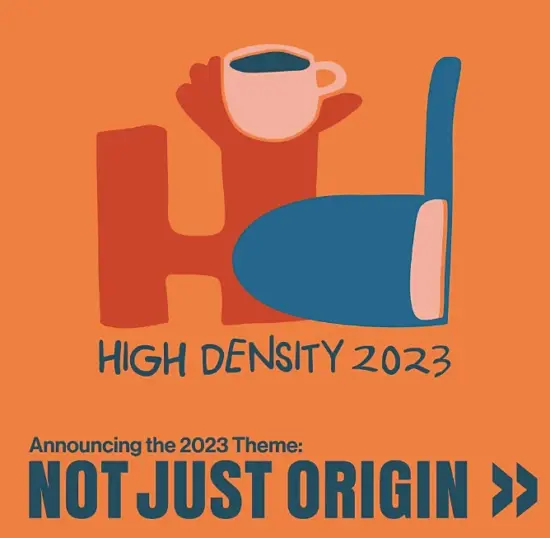
Ordna Event Agency, renowned for its focus on high-quality and inclusive events in the specialty-coffee sector, curated a full-day program that featured some of the most influential names in the industry. Each speaker brought their unique perspectives and experiences, contributing to an enriching dialogue that transcended geographical boundaries.
Recognizing and Addressing Power Asymmetries
The first lecture I attended was called “Power asymmetry in the coffee chain: Sources, manifestations, and remedies.“ It was presented by Karl Wienhold, independent consultant and writer of the book Cheap Coffee. Karl’s lecture explored various dimensions of power, including market and bargaining power, shedding light on factors like substitutes, accessibility, urgency, and access to resources that influence power relations.
He explored the impact of branding on power dynamics, and emphasized how unique branding can shift the balance of power, particularly with differentiated products. The discussion extended to broader factors such as infrastructure, education, legal systems, and the colonial legacy, which can all contribute to power imbalances within the industry.
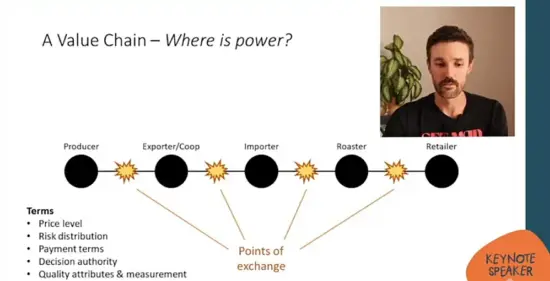
The lecture further delved into potential ways to redistribute income and power. Reducing the number of coffee farmers was proposed, emphasizing oversupply as the primary issue. Altering institutions was also discussed as a method to rebalance power dynamics, either through political processes or systemic breakdowns that prompt institutional change.
Finally, Karl explored the concept of organizing small, less powerful actors in the value chain. This will collectively exert influence, challenge existing power structures, and potentially improve terms of exchange. The conclusion highlighted the need to recognize and address power asymmetries actively, avoid passive exercise of power, and focus on profound reform rather than short-term solutions. Karl emphasized the idea that real power cannot be given but must be claimed, encouraging efforts to support the least powerful in reclaiming their dignity and livelihoods.
Achieving Ethical Practices in Controversial Regions
The second lecture I attended was presented by Sara Morrocchi of Vuna Origin Consulting, and titled “Exploring ethical sourcing in politically controversial territories.“
Sara delved into the complexities of ethically sourcing coffee from politically controversial regions, using Myanmar and Uganda as illustrative cases.
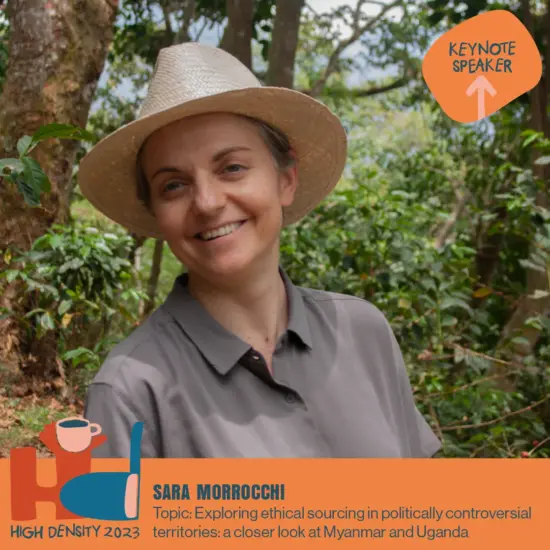
She first introduced the foundation of ethical sourcing, encompassing direct relationships, sustainable prices, social responsibility, and environmental stewardship,. Then she navigated the moral dilemmas faced by roasters when considering sourcing from countries undergoing political turmoil. She emphasized the need to comprehend the multifaceted nature of these events and explore their historical roots.
Sara provided three practical tips for responsible sourcing. The first was including the proposal of a co-created code of conduct to establish shared values. The second was awareness that the majority of the invested money goes to farmers rather than government institutions. Lastly, ensuring active engagement with the local coffee sector to address political concerns at a higher level.
Two additional recommendations focused on understanding the legacy of colonialism and avoiding the imposition of a singular moral compass, urging a nuanced approach in cross-cultural interactions.
Throughout the lecture, Sara emphasized the importance of contextualizing issues, learning from local perspectives, and maintaining a critical approach to ethical sourcing. Her aim was to demonstrate that ethical practices are achievable even in politically controversial regions. This requires collaboration, understanding, and responsible business strategies.
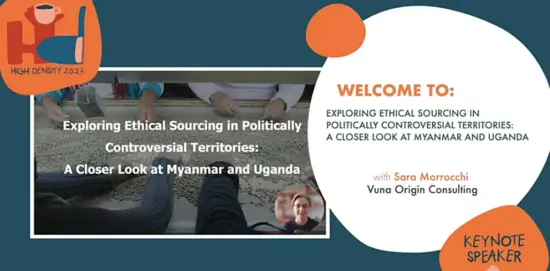
Celebrating Diversity and Impact Beyond Borders
High Density 2023 was also dedicated to making a positive impact beyond the coffee cup. The event served as a platform to raise funds for Grounds for Health, a nonprofit that provides cervical cancer screenings and vaccinations for women in coffee-producing countries.
Throughout the 10 hours of lectures, workshops, and sessions on sustainability, barista skills, career development, and social aspects, High Density 2023 sought to redefine our perception of “origin.“ It encouraged us to consider the complexities inherent in each coffee-producing region. Coffee is not just about where it comes from; it’s about the people, cultures, and stories that make each sip a unique experience.
ABOUT THE AUTHOR
Vasileia Fanarioti (she/her) is a senior online correspondent for Barista Magazine and a freelance copywriter and editor with a primary focus on the coffee niche. She has also been a volunteer copywriter for the I’M NOT A BARISTA NPO, providing content to help educate people about baristas and their work. You can follow her adventures at thewanderingbean.net.
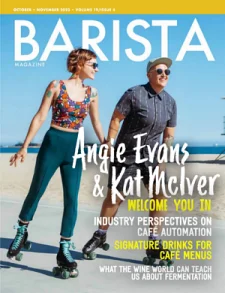
READ THE LATEST BARISTA MAGAZINE
Out now: It’s the October + November 2023 issue of Barista Magazine! Read for free with our digital edition. And for more than three years’ worth of issues, visit our digital archives here.
Get a hard copy of the magazine through our online store, or start a subscription for one year or two.


